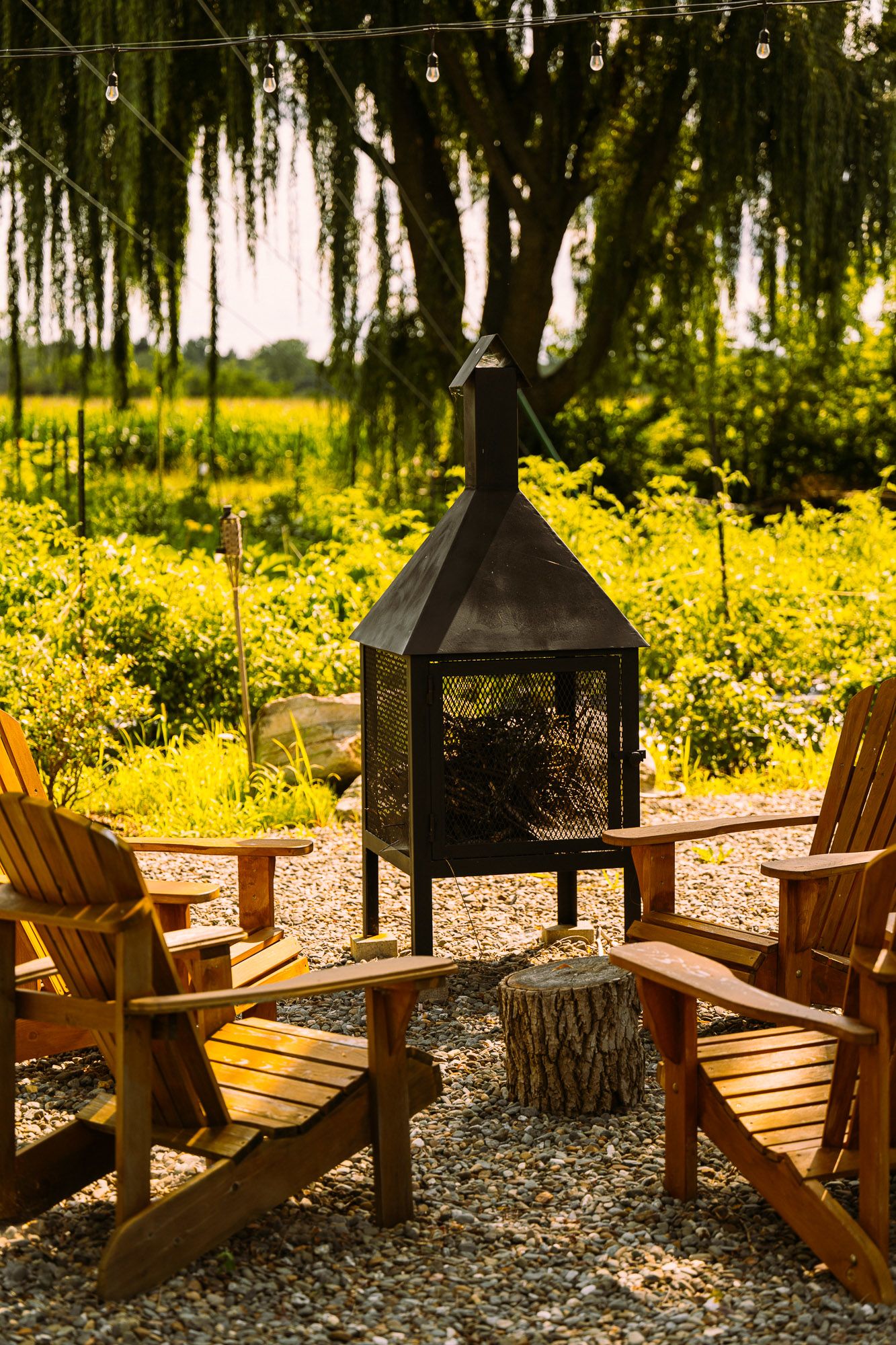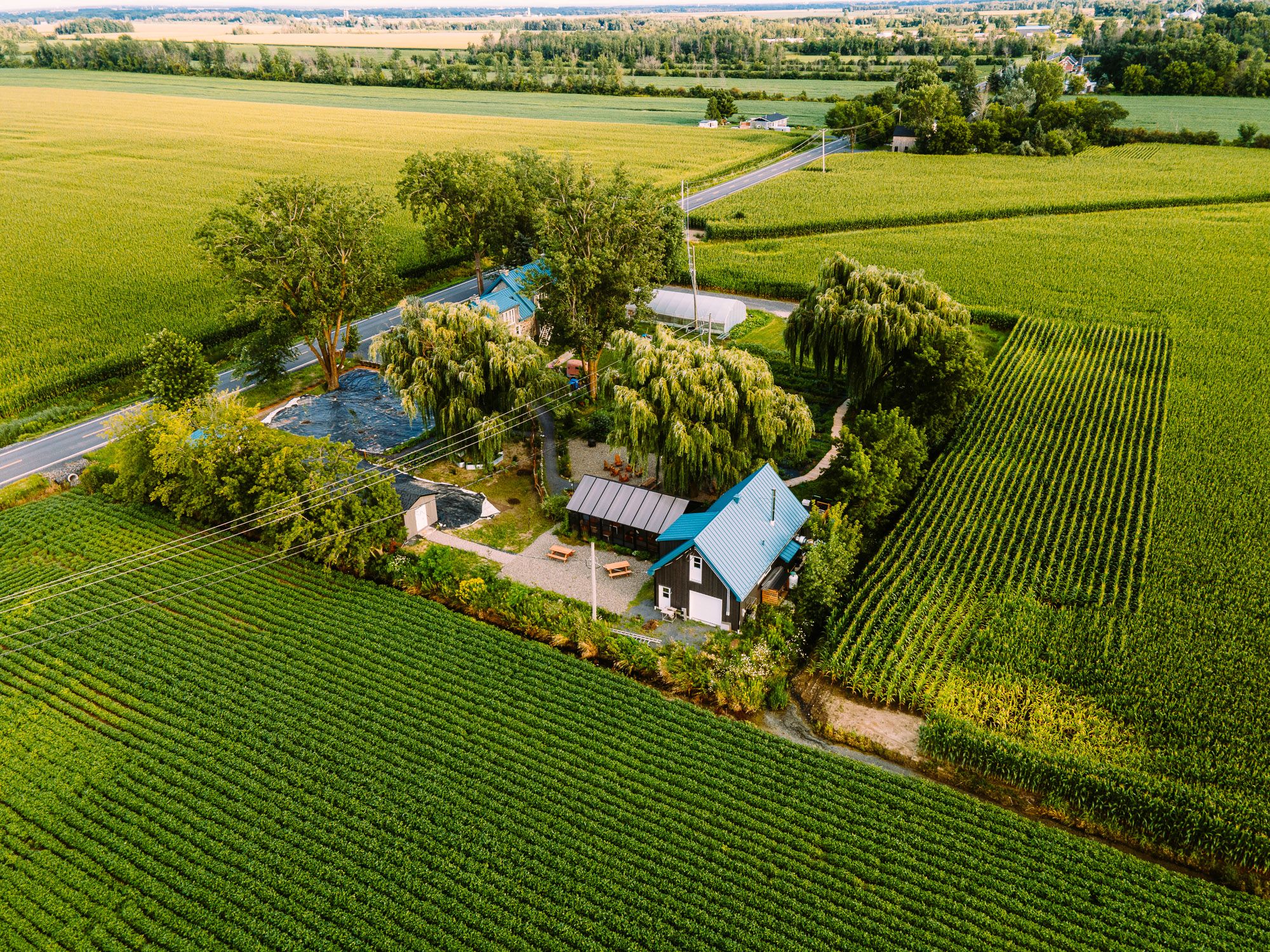Rooted in Tradition
Bika Farm & Kitchen is Chef Fisun Ercan's love letter to the bounty of nature and to her Turkish roots
By Andréanne Joly
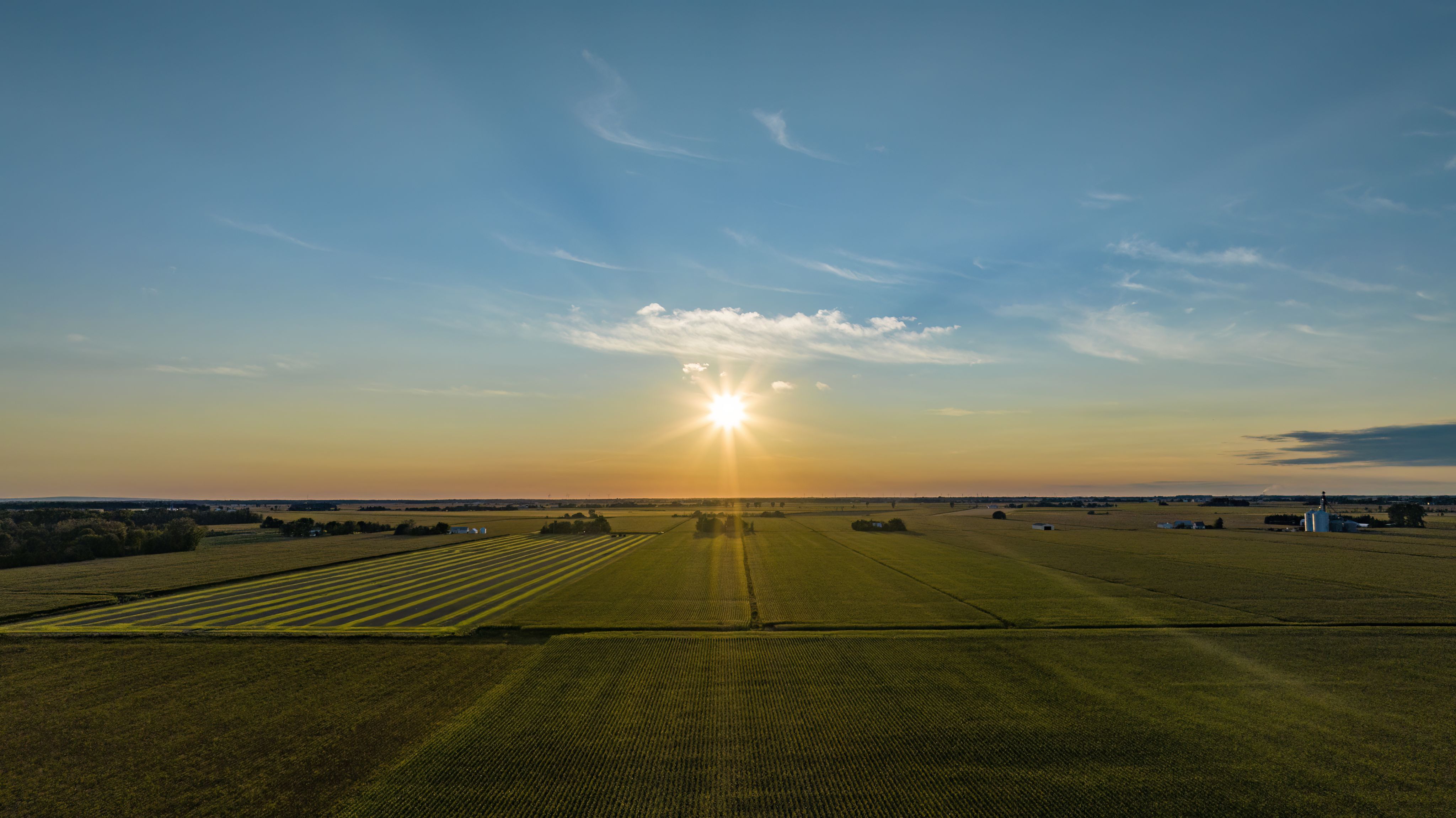
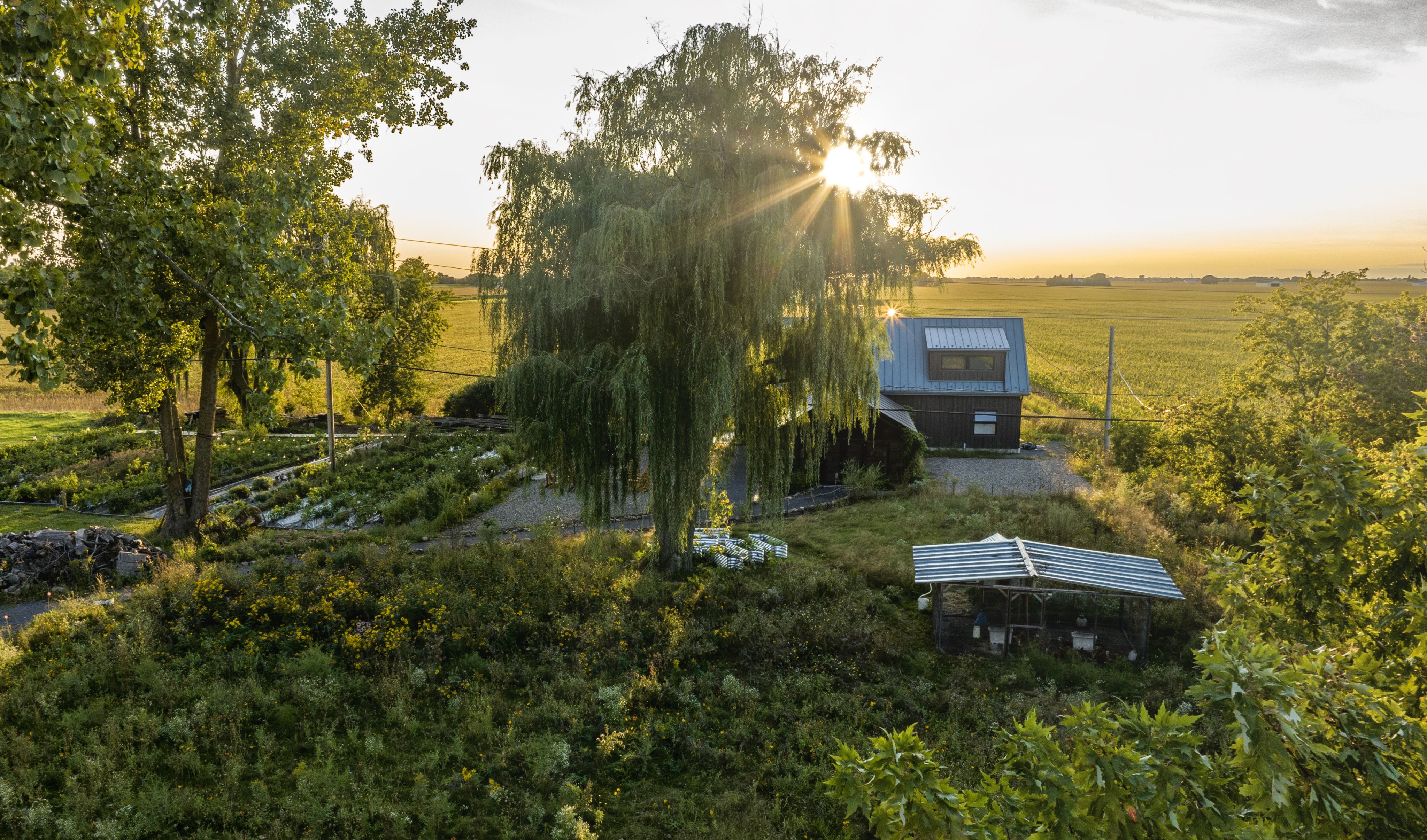
Chef Fisun Ercan loves spending time in her garden.
She enjoys having coffee or an aperitif near the outdoor fireplace in her yard, under the shade of a weeping willow. Sometimes, she puts on her apron and works directly in the greenhouse, which also serves as a dining room for guests.
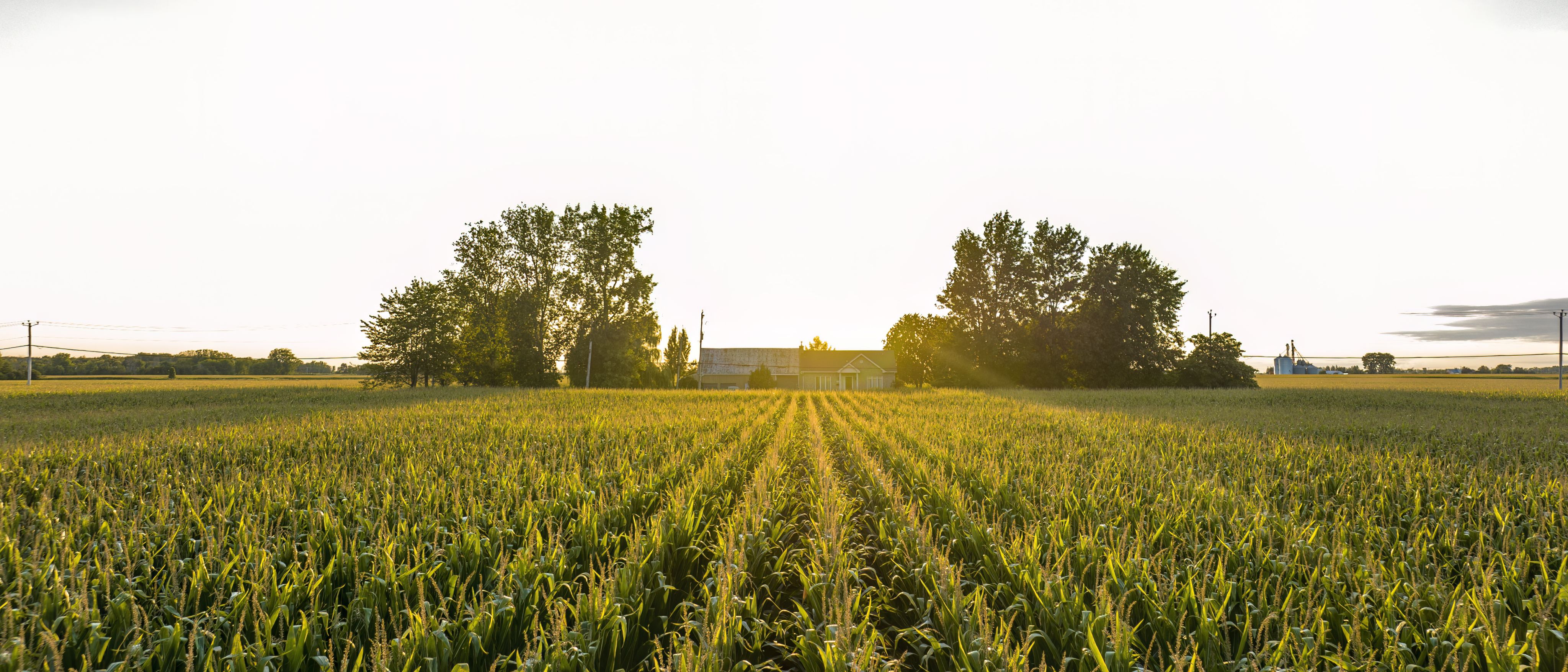
“It’s very serene,” she says. “Even when it rains, it’s very romantic, a bit mystical.”
Welcome to Bika Farm and Kitchen, an acclaimed farm-to-table restaurant located in Quebec’s Monteregie region in the rural town of Saint-Blaise-sur-Richelieu. It is here, on a heritage property, that Fisun serves Turkish dishes right in the middle of her dreamy vegetable garden.
Photo: Drowster
Photo: Drowster
"I wish I had my father's talent for talking about food," Fisun says, with a laugh. Every morning, when Fisun was growing up in Türkiye, her father would come back from the market with a basket of fresh produce. He would vividly explain how he would prepare and cook all the beautiful ingredients, making everyone's mouths water.
Much like her father, Fisun has embraced the riches of the land and, as a chef, relies on freshly picked produce to grace her dishes and her table.
Photo: Jeff Frenette Photography
Photo: Jeff Frenette Photography
From Montreal to Monteregie
Fisun has been dreaming of a rustic, countryside table ever since she embarked on her culinary career, just a few years after arriving in Canada.
In Montreal, Fisun was already known as an ambassador for Turkish cuisine and had a successful restaurant, Su (which means water in Turkish). But she continued to long for a more rustic setting that reflected her upbringing.
In 2018, she discovered a 160-year-old stone house less than 40 km from Montreal and knew she had found the perfect spot.
"It’s the house that chose me," she says.
The property, surrounded by fields, reminds her of her childhood home. But there was work to be done: renovating the residence, planting a large vegetable garden and building a kitchen that would extend into the dining room.
"Bika means many things in many languages," Fisun says. "In Japanese, it means to make beautiful...and that's what we've been doing since we arrived here. It's the property, the garden, the restaurant side and everything, we're trying to make it beautiful and good."
In 2020, the property was ready and the chef closed Su after 14 years in business to open Bika, her new culinary adventure.
Listen to Fisun in her own words (audio in French):
For Garden to Plate
Bika, according to Fisun, is "the smallest farm in the world," where they grow two tons of various vegetables each year.
"Even though it’s not a large piece of land, we’re able to be self-sufficient if we want to be," she proudly explains.
Upon arriving at Bika, you pass by the ancestral house and a large vegetable garden.
“A big tree, a weeping willow — there are three on the property —greets us. We walk underneath it,” describes the chef-owner.
The fireplace, sheltered by the willow, stands right in the middle of the space. One path leads to the chicken coop, another toward the rustic outdoor table.
Photo: Jeff Frenette Photography
Photo: Jeff Frenette Photography
“All around, there are wild roses and other flowers. You can smell everything, of course—the flowers, even the fields around us.”
Soon, an orchard will add its own fragrances.
In the greenhouse attached to a barn that houses her kitchen, is the dining room where she hosts guests from spring to November.
“All the windows are open. It’s like being in a garden, but we’re protected from the rain and the bugs.”
"I wish I had my father's talent for talking about food," Fisun says, with a laugh. Every morning, when Fisun was growing up in Türkiye, her father would come back from the market with a basket of fresh produce. He would vividly explain how he would prepare and cook all the beautiful ingredients, making everyone's mouths water.
Much like her father, Fisun has embraced the riches of the land and, as a chef, relies on freshly picked produce to grace her dishes and her table.
From Montreal to Monteregie
Fisun has been dreaming of a rustic, countryside table ever since she embarked on her culinary career, just a few years after arriving in Canada.
In Montreal, Fisun was already known as an ambassador for Turkish cuisine and had a successful restaurant, Su (which means water in Turkish). But she continued to long for a more rustic setting that reflected her upbringing.
In 2018, she discovered a 160-year-old stone house less than 40 km from Montreal and knew she had found the perfect spot.
"It’s the house that chose me," she says.
The property, surrounded by fields, reminds her of her childhood home. But there was work to be done: renovating the residence, planting a large vegetable garden and building a kitchen that would extend into the dining room.
"Bika means many things in many languages," Fisun says. "In Japanese, it means to make beautiful...and that's what we've been doing since we arrived here. It's the property, the garden, the restaurant side and everything, we're trying to make it beautiful and good."
In 2020, the property was ready and the chef closed Su after 14 years in business to open Bika, her new culinary adventure.
Listen to Fisun in her own words (audio in French):
For Garden to Plate
Bika, according to Fisun, is "the smallest farm in the world," where they grow two tons of various vegetables each year.
"Even though it’s not a large piece of land, we’re able to be self-sufficient if we want to be," she proudly explains.
Upon arriving at Bika, you pass by the ancestral house and a large vegetable garden.
“A big tree, a weeping willow — there are three on the property —greets us. We walk underneath it,” describes the chef-owner.
The fireplace, sheltered by the willow, stands right in the middle of the space. One path leads to the chicken coop, another toward the rustic outdoor table.
“All around, there are wild roses and other flowers. You can smell everything, of course—the flowers, even the fields around us.”
Soon, an orchard will add its own fragrances.
In the greenhouse attached to a barn that houses her kitchen, is the dining room where she hosts guests from spring to November.
“All the windows are open. It’s like being in a garden, but we’re protected from the rain and the bugs.”
Photo: Jeff Frenette Photography
Photo: Jeff Frenette Photography
Photo: Jeff Frenette Photography
Photo: Jeff Frenette Photography
Photo: Drowster
Photo: Drowster

Bika brings Fisun closer to her childhood and to an even more authentically Turkish table than she was able to offer in her urban restaurant setting.
Fisun roots are near the Aegean Sea, in the Turkish province of Izmir. Her village, Seferihasar, had just 4,000 residents when she was growing up. Since then, it has joined the Cittaslow sustainable development movement, inspired by the slow food movement.
Cittaslow promotes quality of life and community and cherishes historical sites. Above all, local food is at the heart of everything. Seferihasar was one of the first Turkish towns to officially adopt this way of life, something that has been core to the town since Fisun's childhood.
“For me, it’s a way of life,” she says.
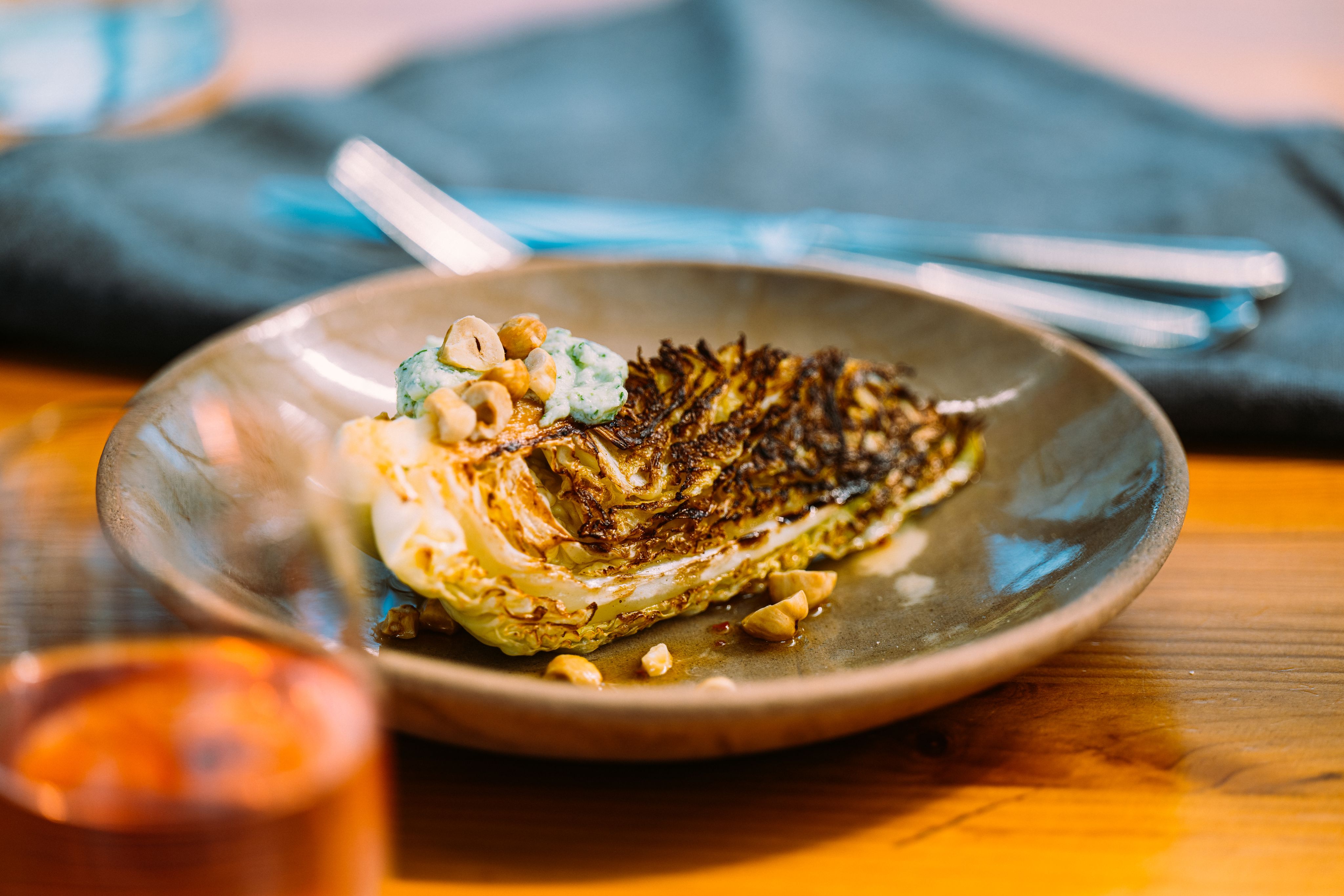
At Bika, the team doesn't go to the fridge; they go to the garden.
"I find it a great joy, but also an honour," she says. "The taste, the texture, everything is so gentle."
Listen to Fisun in her own words (audio in French):
Fisun honours not just her roots but also the terroir on which she grows her ingredients.
“When I opened my first restaurant, it was really to represent the most authentic Turkish cuisine possible. But even though I come from Türkiye, I have a responsibility to my adopted country and to the ingredients found here.”
Photo: Jeff Frenette Photography
Photo: Jeff Frenette Photography
In the winter, the chef carefully selects her seeds. She avoids mass-produced seed catalogues.
"I never have butternut squash in my garden; I never have orange carrots. My carrots are either black or pale yellow. They have different aromas, different tastes."
She explains: “I want my zucchinis to be pale or Romanesco style. They look a bit like a star when you cut them. Usually, we only know the zucchini that doesn't taste like much, but in fact, there are many varieties of zucchini that taste incredibly good. Mild. It's wonderful. Some almost taste like milk. The same goes for eggplants. So, there are some that are very long. We scoop out the inside and stuff them with meat, vegetables, or rice. We also make certain traditional recipes from southern cuisine by making lengthwise cuts, roasting them with meat on top, and so on.”
Zucchinis and eggplants are surrounded by tomatoes, peppers, and more eggplants. Lemon is replaced with rhubarb, which is widely used in Turkish cuisine.
Her garden is also full of flavourful plants.
“Lots of herbs, edible flowers, and weeds that aren’t really weeds at all. We plant them ourselves. They’re edible and very aromatic,” Fisun says.
Photo: Jeff Frenette Photography
Photo: Jeff Frenette Photography
In the everyday cooking of many regions of Türkiye, vegetables take precedence over meat.
“Often, meat is used just to add a bit of flavour to certain vegetables,” she explains. “It depends on the region, but it’s been this way for centuries.”
This is quite a contrast with North American habits: “People aren’t used to eating this way or think they don’t like it.”
But when they taste it, they’re amazed.
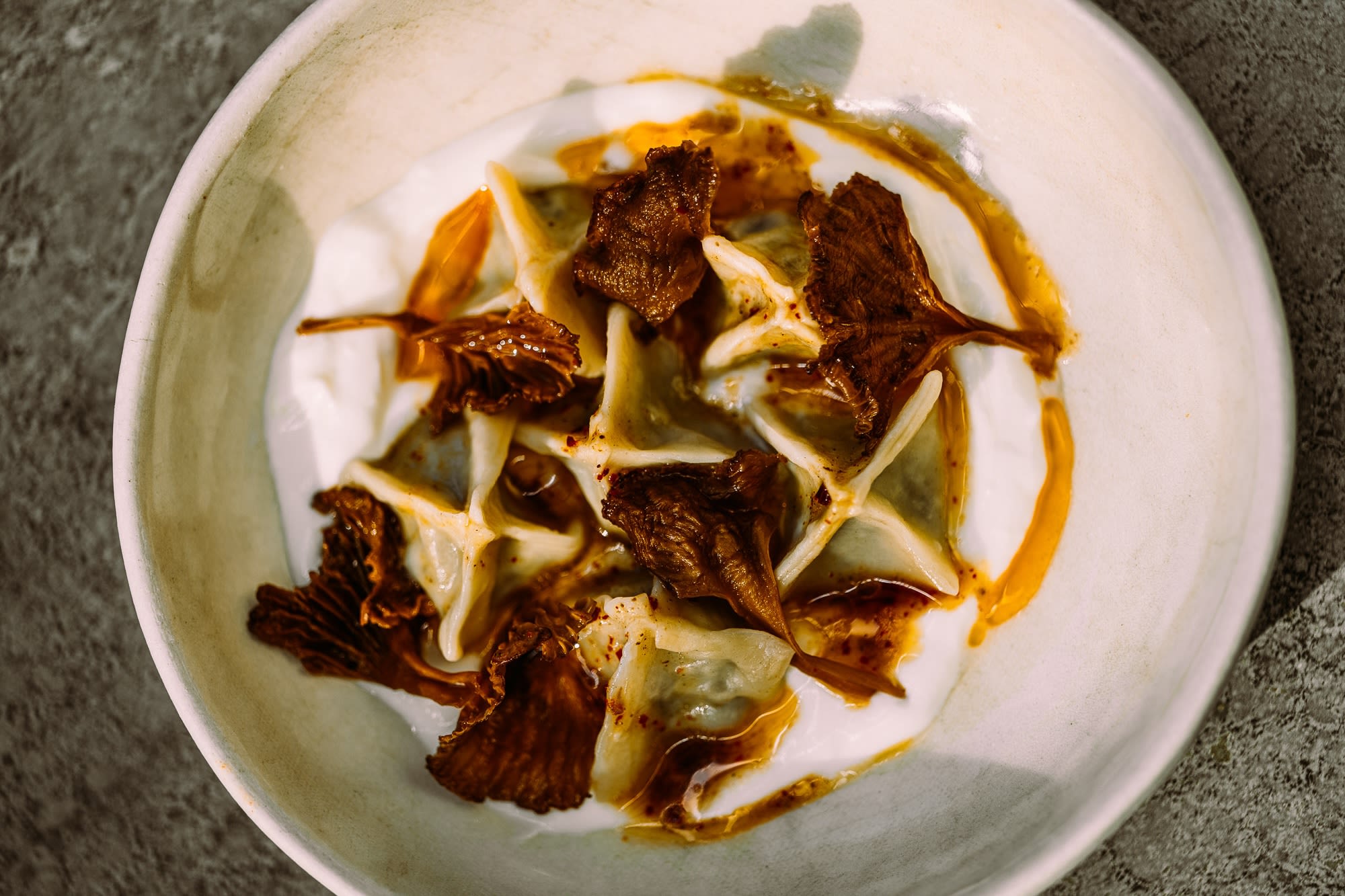
Fisun's commitment to authenticity and sustainability has not gone unnoticed.
Canadas100best listed Bika as one of the best new Canadian restaurants in 2021 and awarded it the Best Farm-to-Table Award in 2022.
Ercan herself was named Chef of the Year in 2024 by Les Lauriers de la Gastronomie Québécoise after being a finalist from 2021 to 2023.
Her book Racines, which is a celebration of her culinary journey, won the Gold Award for Regional and Cultural Cookbooks at the Taste Canada Awards.
The accolades all speak to a life dedicated to quality, sustainability and community.
Photo: Andréanne Joly
Photo: Andréanne Joly
Rest often comes with the first snow, but it is short-lived. Just enough time for a fire under a willow and walks between her garden and greenhouse — also at rest. It gives Fisun time to embrace the essence of 'Bika' and prepare for the beauty of the season ahead.
Andréanne Joly
Andréanne Joly enjoys exploring, digging into, and uncovering the Francophone culture of Ontario and its various attractions. She has also had the opportunity to stay in the Aegean region of Türkiye, where she discovered the generosity and beauty of Turkish cuisine, leaving her with unforgettable memories. A journalist and writer, she regularly collaborates with various tourism organizations such as the Culinary Tourism Alliance and Francophone media outlets like Francopresse.ca, L’Express, Le Voyageur, and others.
Embrace Canada with Landsby
Landsby creates unique and immersive experiences that not only provide travellers with purposeful and enriching trips but aim to positively impact the communities being explored.





